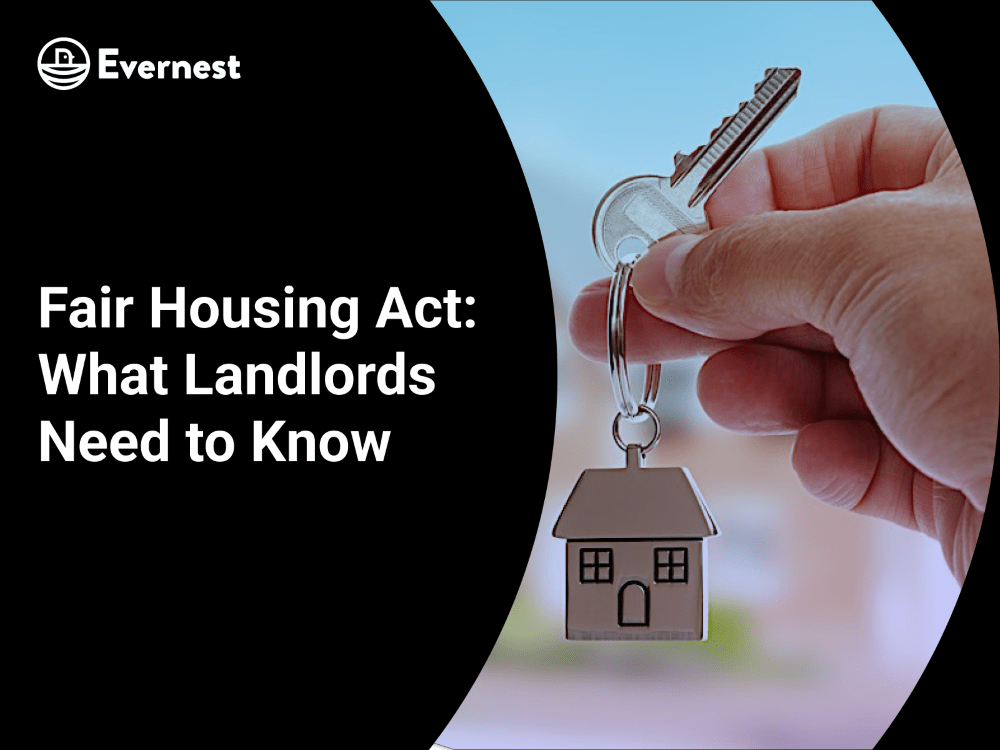What is the Fair Housing Act?
In 1968, a federal law known as the Fair Housing Act was set in place. This law was put into place to stop discrimination from occurring in the housing space, whether that be for renters, buyers, or anyone applying for a mortgage. Under this law, as a landlord, it is prohibited to discriminate against potential residents based on race, gender, nationality, sexuality, familial status, or any disabilities. As a property owner, even though you may not be intentionally discriminating, it’s vitally important to understand that these laws exist to keep you above board legally–and protect you from a potential lawsuit.
Examples of Housing Discrimination
Discrimination can be anything from outright refusing a candidate, to changing rental rates, to any other unequal treatment based on race, gender, religion, etc. To illustrate this further,
- You CAN say ‘no smoking’ or ‘no pets’ because those are legally permitted. You could also turn someone down if they don’t meet financial qualifications.
- You CAN’T, however, say ‘no Catholics’, ‘no Hispanics’, or deny a candidate based on how many children they have. That’s blatant discrimination.
Many instances of discrimination can be more subtle. For instance, raising the rates simply because a resident has children. Or, for one person of a specific gender or ethnicity, you claim to have a set rate but lower it for residents of the opposite gender or another ethnicity.
Regarding Rental Rates
Pay close attention to laws, rules, and regulations when it comes to rates. Our suggestion is to make sure they are consistent across the board. For every candidate, no matter if they are married, single, religious, etc., keep the rates and requirements the exact same for everyone.
Phrases to Avoid
To go even further, when advertising or speaking about your property, you can’t use any phrases relating to sex, ethnicity, or religion. For example, using descriptions such as ‘African-American neighborhood’ or ‘Muslim community’ can get you into trouble.
Familial Status
Also, making suggestions on a property based on a person’s familial status can also be labeled as discriminatory. You can describe the home as a generic house, and make mention of its amenities, but you’ve got to let the resident decide on which property they are interested in without persuasion.
Fair Housing Act Enforcement
In cases that involve discrimination in mortgage loans or home improvement loans, the Justice Department can file suit under the FHA if there is a pattern or practice of discrimination or where a denial of rights to a group raises an issue of general public importance.Fair housing laws are enforced by the U.S. Department of Housing and Urban Development–aka the HUD–and the Department of Justice–aka the DOJ.
What Does The Fair Housing Act Protect Against?
For residents and buyers, the FHA shields them from being unfairly treated due to discrimination based on their gender or race, as well as other factors. These include:
- Color
- Race
- Familial status (number of children under 18 and pregnant women)
- Religion
- National Origin
- Disability
- Sex (harassment, gender, etc.)
It keeps the playing field even for anyone looking to rent a home or purchase one for themselves. As a future or current property owner, it protects your right to receive a mortgage and purchase a home no matter your race or gender. The same rules that apply to you regarding your tenets applied to the individual or corporation who sold the property to you.
Who Enforces The Fair Housing Act
While the primary enforcer is the HUD, state and local governments also are key enforcers. The FHA provides a baseline set of rules, but each state and local jurisdiction can add to those laws as well. For example, the city of Atlanta has added age, domestic relationship status, parental status, gender identity, or sexual orientation. (Side note, if you’re thinking about investing in Atlanta and are unsure about residents, then read this article here).It’s important when investing in a neighborhood that you understand not only the federal laws, but state, county, and city laws as well. At times, they can even vary by community, so doing thorough research is essential. If you want to check out individual state laws, you can check out this page on the HUD’s website to learn more.
Educate Yourself on Fair Housing Laws
As a landlord, it is critical to understand the laws within your property’s jurisdiction to prevent legal action, such as a lawsuit. Even if you don’t intend to be discriminatory, ignorance of the specifics of the Fair Housing Act and any amendments added by state governments can leave you in some hot water. A great way to ensure you’re above board with neighborhood laws is by hiring a property manager. Since laws and regulations vary in states, counties, and cities, a local property manager has boots on the ground and thoroughly understands the processes of protecting your property physically and legally. You can inquire about choosing us as your property manager here. >>


